How to Get Rid of Really Bad Dandruff
help!!!
How to Get Rid of Dandruff
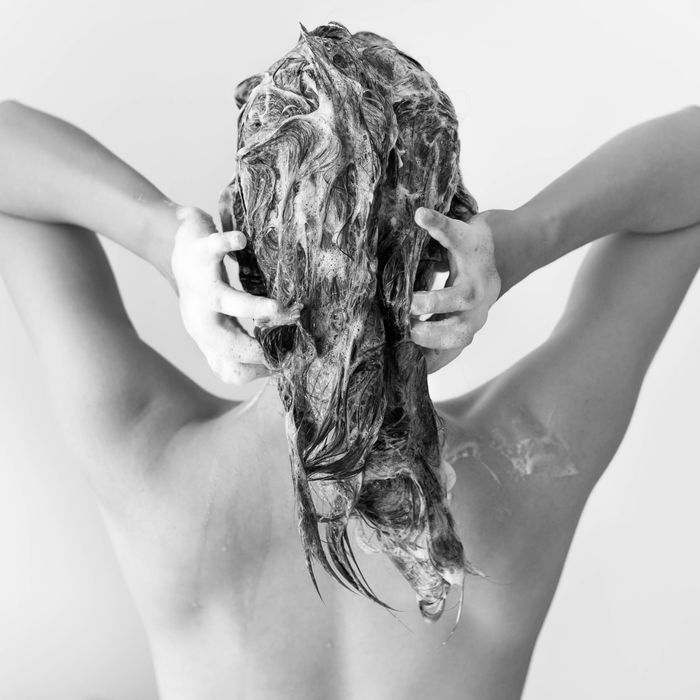
Photo: globalmoments/Getty Images/iStockphoto
Regardless of the season, a flaky scalp can be a pesky problem. How do you get rid of dandruff? Below, some tips and tricks for how to address your head case — so that you can finally start wearing true black again.
Dandruff is caused by a fungus called malassezia, according to Dr. Zenovia Gabriel of Zena Medical. Malassezia lives naturally on the skin for many people, but an overgrowth or imbalance of the fungus leads to dandruff. Our bodies are constantly shedding dead skin cells, but an increase in malassezia triggers the body to produce and shed skin cells faster and at a detrimental rate. Malassezia overgrowth can be caused by many things including age, hormones, or stress.
Dr. Jessica Weiser of New York Dermatology Group explains that dandruff, which presents itself as white flakes, is a mild and common form of seborrheic dermatitis. You can get it behind the ears, eyebrows, or even in folds of the face. It can be red, flaky, itchy, or a combination of all those factors. (It's different from psoriasis, which also can look like flakes — but those will appear like "thicker pink or red plaques" with "silver-white scales" on close examination. Go to a dermatologist if you aren't sure.)
Much like olive-oil bread, dandruff is created by the mixture of oil and yeast (the malassezia). We all have some yeast on our bodies, explains Dr. Joshua Zeichner, director of cosmetic and clinical research at Mount Sinai Hospital's Department of Dermatology, and the amount varies depending on a blend of genetics and external and internal factors.
So how do you get rid of it? You treat the oil and the yeast, and prevent its ability to multiply. Read on.
According to Dr. Macrene Alexiades-Armenakas, a New York–based dermatologist, poor nutrition can lead to dandruff. "High-carb foods can result in the buildup of glycogen in the skin, which yeast feeds on." Dr. Zeichner agrees: "Although there's little data, the same foods that promote acne may exacerbate dandruff." Sugary foods and dairy stimulate the sebaceous glands, which produce more oil on the skin. So unfortunately, you might need to try laying off the carbs and sugars if you're prone to dandruff.
We live in the peak age of dry shampoo, when you can extend your blowout longer than the life of your last succulent. This is partially contributing to the whiteout situation on your scalp.
"There's this concept now that you need to let natural oils sit longer on your scalp, but that can add to the problem," Elizabeth Cunnane-Phillips, a trichologist at the Philip Kingsley Trichological Clinic, explains. Yeast levels rise when there is more oil on skin. Dr. Weiser adds, "Oils and dead skin cells further accumulate as a result of infrequent hair washing. Patients prone to dandruff or seborrheic dermatitis should regularly wash hair a few times a week at minimum to reduce build up."
Yes, this is a thing. Much like exfoliating your skin, exfoliating your scalp gently lifts the top layer of dry skin. Scalp exfoliators typically remove dead skin with either small amounts of salicylic acid (more commonly found in acne products), or granules that dissolve. Dr. Weiser explains that the latter are "very helpful at breaking down the dead skin cells that accumulate on the scalp and lead to flaking." Dr. Gabriel recommends using an exfoliating hair scrub on wet, shampooed hair twice a week, and being certain to read the directions so you leave it on the hair for the right length of time.
All of the experts interviewed for this article believe that a specialized dandruff shampoo is the most effective and quickest way to treat dandruff. They can be obtained via prescription (for stronger stuff) or over-the-counter and contain zinc or sulfur, which can reduce yeast populations. While dandruff shampoos aren't beautiful, sensorial washing experiences, gone are the days of smelly Selsun Blue. They haven't become chic, but their smell and packaging no longer make them repellent.
Here are some of the best dandruff shampoos. If you have simple dryness and flaking, Dr. Weiser says that shampoos with salicylic acid should be enough. If you have redness and irritation, try the ones with zinc pyrithione (the same stuff in Head and Shoulders), ketoconazole and selenium sulfide.
"Oil-based treatments can help to balance some of the scalp's excessive oil production," says Dr. Weiser. "Applying oils to the scalp will help draw oils from it and remove them. It's the classic law of attraction, where like substances attract each other." You can try heating up the only oil celebrities are unafraid of, coconut oil, in a microwave and gently applying it to your head. Be careful not to make the oil too hot, as doing so increases the risk of burning your scalp. But Dr. Gabriel cautions that it won't be a cure-all. "While helpful for combatting dryness, hot oil treatments alone cannot treat dandruff caused by the growth of fungus."
Dr. Internet suggests using apple-cider vinegar as a home remedy for many things and a base for many products, among them a toner, a hot-water salve, and a treatment for dandruff. Dermatologists are a bit divided on this. Dr. Zeichner says it could potentially help: "Apple-cider vinegar has anti-microbial and anti-inflammatory properties to lower levels of yeast on the skin and calm inflammation." If you have a mild case of dandruff, Dr. Gabriel suggests combining half a cup of apple cider vinegar with one and a half cups of cool water. Pour the mixture onto the hair in the shower after shampooing and rinse out.
But Dr. Weiser says: "I do not generally support the use of apple-cider vinegar for dandruff," as there are more effective remedies available. Don't go overboard with making your hair smell like salad dressing.
For the occasional dandruff attack, Dr. Gabriel has another home remedy. You can try adding a few drops of tea tree oil to your shampoo. "Tea tree oil contains anti-microbial and anti-inflammatory properties that can help reduce the severity of dandruff."
Unfortunately, dandruff shampoos can dry out your hair, in addition to your scalp. To ensure this doesn't happen, Dr. Weiser says that you should apply your special shampoo only to the scalp. "These shampoos and treatments should be applied directly to the scalp (not the hair) and massaged gently in place for at least five minutes with each application." Make sure you don't do it for less than five minutes, to give the active ingredients time to work.
It's the white bear problem, but try not to think about scratching. It's so itchy, I know, but scratching can exacerbate inflammation and irritation. Particularly if you have long, sharp nails, scratching can cause open scalp wounds which lead to infections. Dr. Weiser suggests doing a gentle massage only, saying that it "allows ingredients to penetrate the scalp."
Try a ponytail or updo. Nathaniel Hawkins, a celebrity hairstylist for Adele and Heather Graham, also adds, "Resist the urge to itch. When your hair is down and has freedom of movement, the flakes will fall."
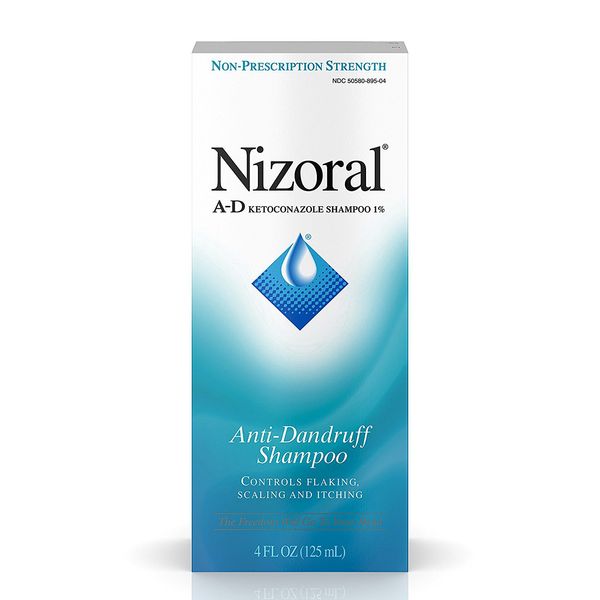
An over-the-counter version of a prescription shampoo containing ketoconazole, an anti-fungal treatment. It is a big hit within the dandruff community on Reddit, and has a barely-there scent.
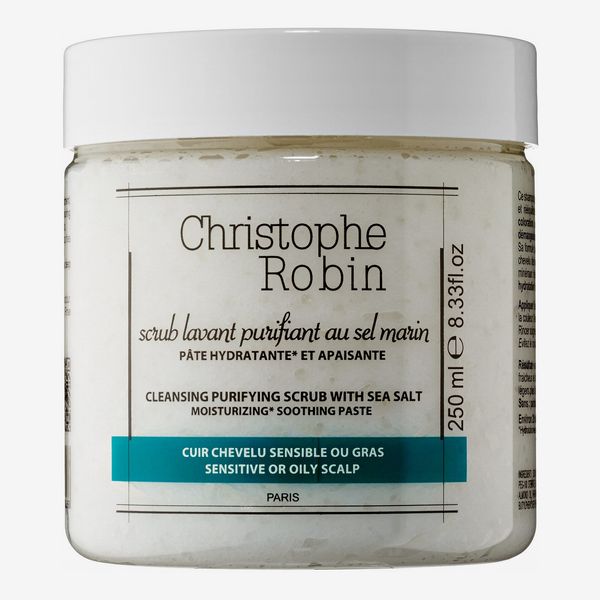
It's a scalp scrub and a shampoo, formulated by Catherine Deneuve's colorist of 18 years, Christophe Robin. It contains sea-salt granules that exfoliate the scalp, then dissolve, meaning they won't get stuck in the hair or dry it out. Plus, it has a pretty, sort of salty lemon smell.
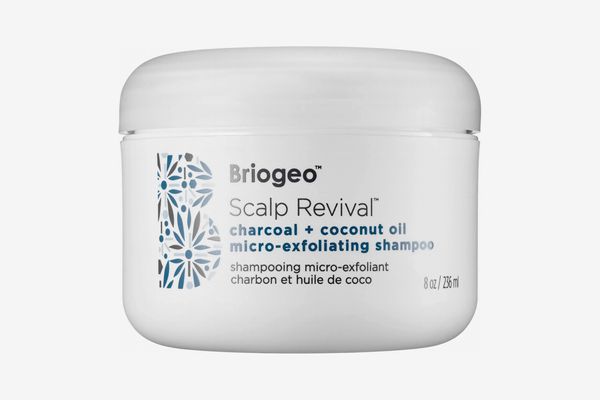
This is also a scrub and a shampoo that smells intriguingly like Thin Mints. It's chock full of things to soothe your scalp, including charcoal (rumored to draw out impurities), tea tree oil, peppermint oil, and spearmint oil. Small microfine bits of exfoliator help slough dead skin off the scalp, too.
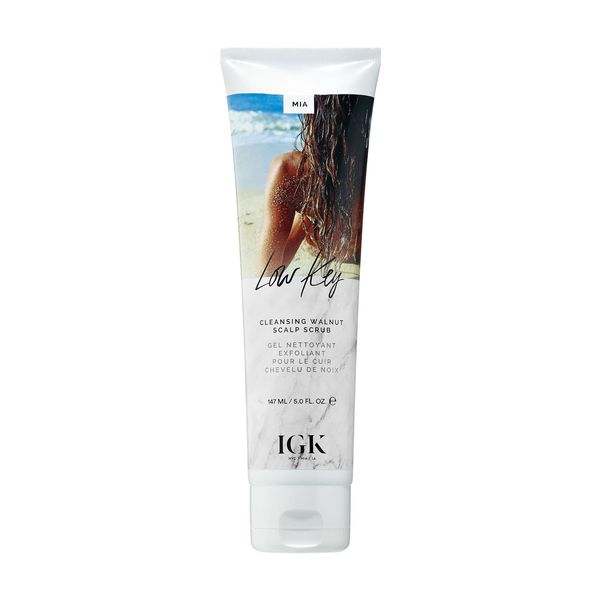
Unlike most scrubs, this one uses sugar instead of salt to exfoliate. It also uses a bit of peppermint oil so it has a pleasing, cooling effect when you wash your hair.
This article was originally published June 6, 2018. It has been updated throughout. If you buy something through our links,New York may earn an affiliate commission.
How to Get Rid of Really Bad Dandruff
Source: https://www.thecut.com/article/how-to-get-rid-of-dandruff.html